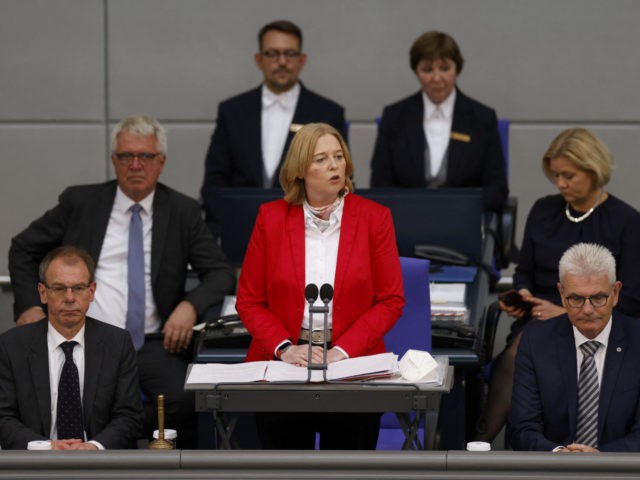BERLIN (AP) – Germany’s newly elected parliament held its first meeting Tuesday and elected a lawmaker from the centre-left Social Democratic Party as speaker of the 736-member lower house, or Bundestag.
German Chancellor Angela Merkel attended the session although she is no longer a lawmaker. She sat in the visitor stands of parliament.
Later in the afternoon, German President Frank-Walter Steinmeier is set to formally dismiss Merkel and her Cabinet, though they will be asked to stay on in a caretaker capacity until a new government is in place. Merkel’s Union bloc finished behind the Social Democrats in Germany’s federal election last month.
“The citizens are looking to us, and their expectations of parliament are rightly high,” Wolfgang Schaeuble, the previous parliament speaker, said. “We all should continue to do everything we can to meet their expectations.”
Schaeuble, 79, a conservative veteran and former finance and interior minister, is the longest-serving member of parliament. He has been a lawmaker since 1972.
The new speaker, Baerbel Bas, has been a member of the Bundestag since 2009. Bas, 53, was a deputy leader of her party’s parliamentary group in the last parliament and its spokesperson on health, education and research.
She told fellow lawmakers Tuesday that she would work for fairer representation of women in parliament. Bas is only the third woman to head the Bundestag since its creation in 1949.
“The responsibility has by far not been spread fairly on all shoulders,” she said.
While the Bundestag has more female members following last month’s election, women are still a long way from reaching parity in the national legislature. More than a third, or 34.7 per cent, of the new lawmakers are women compared to 31.4 per cent in the previous parliament, according to German news agency dpa.
Bas emphasized that even though parliament does not yet reflect the full diversity of German society, the new Bundestag has become more diverse, with more immigrant lawmakers and younger members, too.
She vowed to protect the lower house against hatred and promised, “I will defend democracy against its enemies.”
The three parties that hope to form Germany’s new government said last week they aim to have the country’s next chancellor in place in early December, but acknowledged that they face a complex task.
The Social Democrats, environmentalist Greens and pro-business Free Democrats opened formal coalition talks following a preliminary deal earlier this month, which set out their priorities but left many open questions.
German coalition talks are an elaborate affair, producing an agreement that sets out details of the government’s program for its four-year term. They have tended to get longer over the years as the country’s political landscape has fragmented, meaning that elections rarely produce parliamentary majorities for traditional allies.
If the negotiations succeed, the new government will send Merkel’s centre-right Union bloc into opposition after 16 years at the helm. Her successor would be Olaf Scholz, who propelled the Social Democrats to a narrow election victory on Sept. 26. He is the vice chancellor and finance minister in the current government.

COMMENTS
Please let us know if you're having issues with commenting.